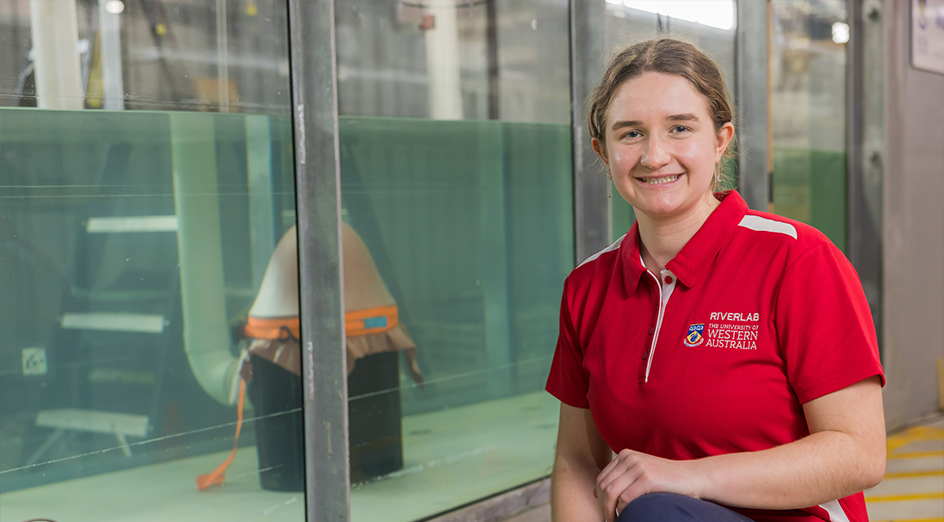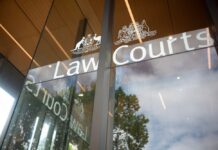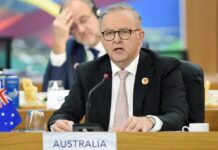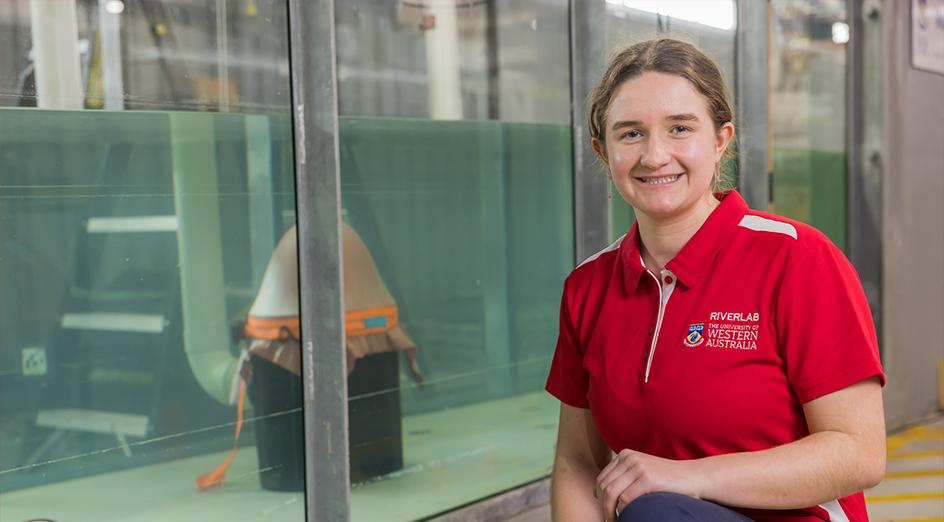UWA students make waves in clean energy transition

Students at The University of Western Australia (UWA) are using the Swan River to advance renewables technology and drive the state’s transition to clean energy.
Since 2016, RiverLab, a partnership between UWA and Woodside, has connected engineering students, world-leading researchers and industry partners to tackle emerging challenges in offshore engineering.
Students have the opportunity to design and test prototypes quickly and cost-effectively in Perth’s Swan River Estuary.
Last year, students gained hands-on skills in wave energy technology as a commercially viable clean energy solution.
As part of the project, UWA Bachelor of Philosophy (Honours) and physics student Megan McDougall examined how to improve wave energy capture efficiency in variable wave conditions.
“The variability of ocean wave conditions presents a challenge in designing wave energy converters that perform efficiently under all conditions,” Ms McDougall said.
Rainbow trapping, a wave control technique that spatially separates wave frequencies, has been shown to enhance power absorption when used with carefully arranged arrays of wave energy converters.
The project investigated if rainbow trapping could enhance the performance of a novel type of wave energy converter, consisting of two submerged, air-filled chambers with flexible walls that oscillate due to wave-induced pressure differences, driving air through a power take-off system.
A prototype was built and tested at UWA’s Coastal and Offshore Research Laboratory to determine if the device’s resonant frequency could be tuned — a key requirement for rainbow-trapped arrays.
UWA Oceans Institute’s Dr Hugh Wolgamot says students are playing an important part in developing and testing new technologies to enable the renewable energy sector to continue to grow.
“The results showed that changing the internal air pressure in the chambers has an effect on the resonant frequency, helping to guide our research towards using such devices in rainbow-trapped arrays,” he said.
“Such novel approaches can help provide a solution to the challenge of variable wave conditions in ocean energy harvesting.”
RiverLab delivers on UWA’s strategy to enhance student experience and outcomes through practical learning and industry engagement.
“I’m excited this experience can drive innovations in renewable technology and contribute to the clean energy transition in Western Australia,” Ms McDougall said.























